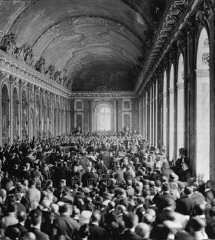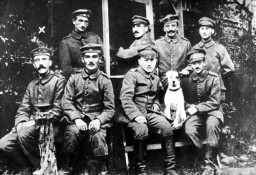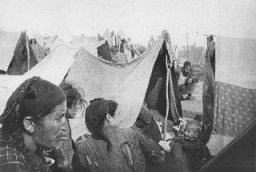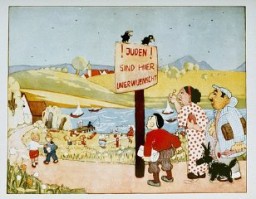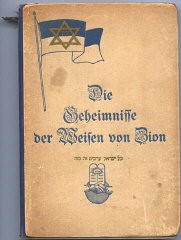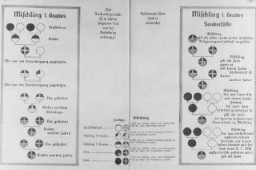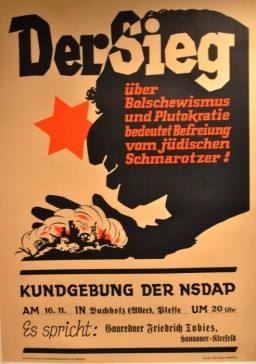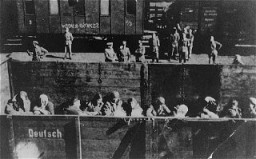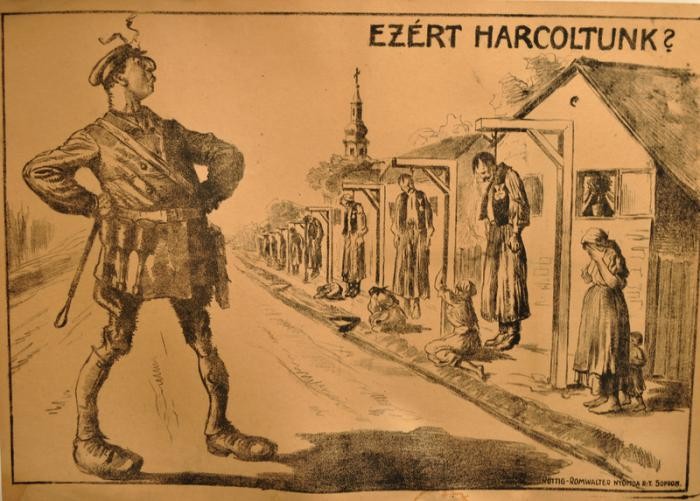
Antisemitism in History: World War I
Background
Before World War I, radical, racist antisemitism was confined to the fringe of right-wing politics throughout most of Europe and in the United States. Nevertheless, enduring stereotypes of Jews and Jewish "behavior" continued to exist among non-Jews.
New Trends
Three trends that developed during and immediately after World War I brought antisemitism, including its racist variant, into the mainstream of European politics.
First, for the nations that lost the war, the dreadful carnage on the battlefield—Europe's first experience with mass man-made death—seemed to be a sacrifice made for no gain. It seemed inexplicable except by insidious internal betrayal. A stab-in-the-back legend attributed the German and Austrian defeat in World War I to internal traitors working for foreign interests, primarily Jews and communists. This legend was widely believed and deliberately disseminated by the defeated German military leadership, seeking to avoid personal consequences for their policies.
Like other negative stereotypes about Jews, the stab-in-the-back legend was believed despite the fact that it was entirely untrue: German Jews had served in the German armed forces loyally, bravely, and out of proportion to their numbers in the population.
Second, the Bolshevik Revolution, the establishment of the Soviet Union, and short-lived experiments with communist dictatorship in Bavaria and Hungary frightened the middle classes all over Europe and even across the Atlantic in the United States. The prominence of individual communists of Jewish descent in the revolutionary regimes (Leon Trotsky in the Soviet Union, Béla Kun in Hungary, and Ernst Toller in Bavaria) confirmed to antisemites the "natural" attraction of Jews and international communism.
Third, in Germany, Austria, and Hungary, the stigma, expressed in the provisions of the Versailles Treaty system, of being blamed for starting the war and having to shoulder the burden of paying damages to the victors, created general anger and despair across the political spectrum. The radical right could then politically exploit this anger and despair.
New Stereotypes
Among the new stereotypes regarding the "behavior" of Jews that appeared in the wake of World War I and that were deliberately propagated alongside older prejudices were the following myths:
- Jews had started the war to bring Europe financially and politically into ruin and make Europe susceptible to Jewish "control."
- Jews exploited the misery of the war to enrich themselves and prolonged it to lead the Bolshevik Revolution in furthering the aim of world revolution.
- With their inherited cowardice and instinctive disloyalty predisposing them against defending the nation, Jews were responsible for the pernicious malaise behind the front and stabbed the fighting troops in the back (causing the military defeat and democratic/socialist revolution).
- Foreign Jews dominated the peace negotiations and succeeded in dividing Germans and Hungarians by artificial national borders, while their co-conspirators, the domestic Jews, misled the nation into "surrender" and permanent "enslavement."
- The Jews controlled the complex finances of the reparations system for their own profit.
- Having established constitutional democracy, Jews used it to weaken the political will of the nation.
Series: World War I
Series: Antisemitism
Switch Series
Critical Thinking Questions
- How did Nazi antisemitism build on previous beliefs and attitudes?
- How was Nazi antisemitism different than previous hatreds of Jews?
- Why do people generalize characteristics for an entire group? How can this be dangerous?
- How can deep-seated hatreds be countered?
- How can knowledge of the events in Germany and Europe before the Nazis came to power help citizens today respond to threats of genocide and mass atrocity in the world?


